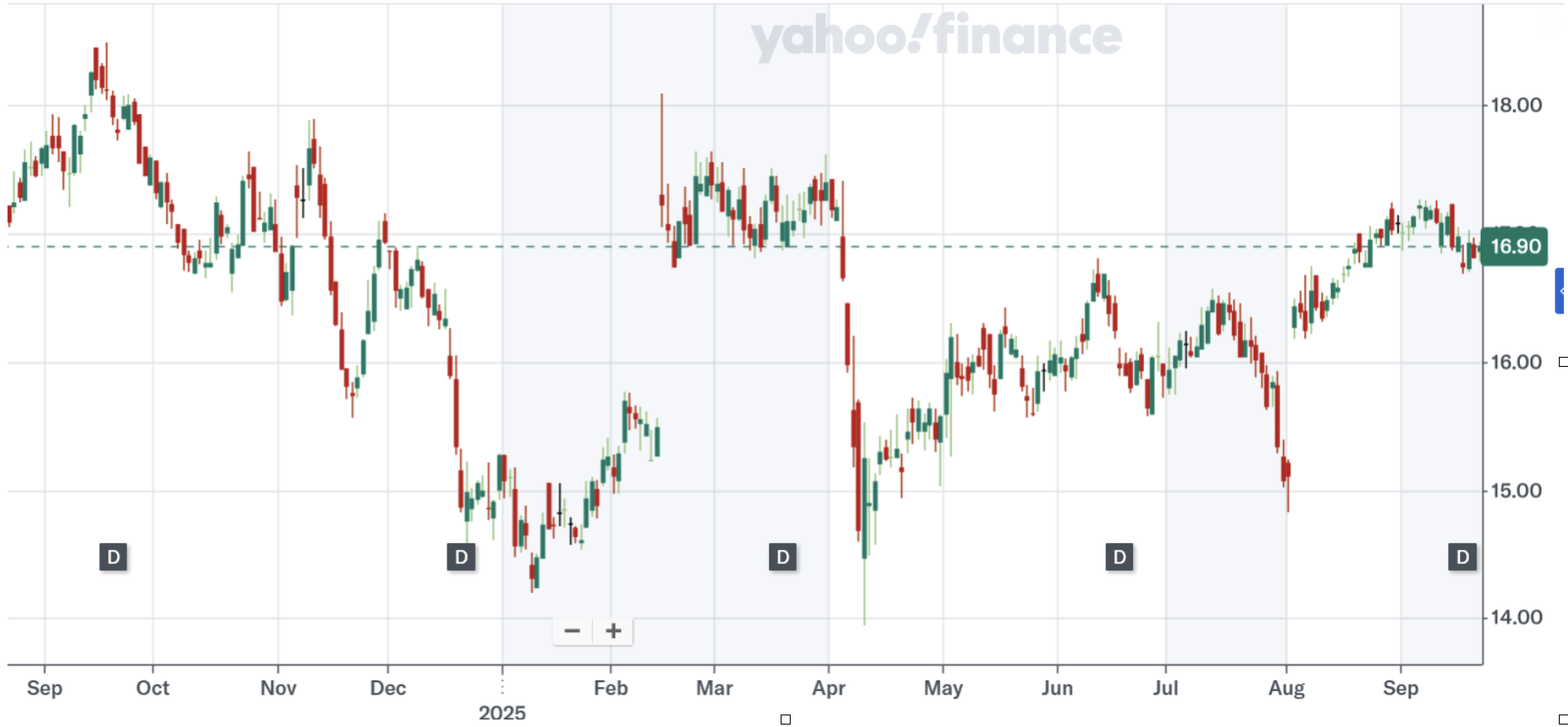An Arbitrage Opportunity in Commercial Real Estate?
Commercial real estate faces steep declines, but ELME’s liquidation plan may offer a rare short-term arbitrage opportunity.
It is well known that commercial real estate is struggling. But it’s also true that the severity and nature of the struggles vary by sector and geography.
Clearly, office space is the worst hit – especially in places like San Francisco, NYC, and Chicago. The hybrid/remote work has permanently reduced demand in these buildings – especially in obsolete (Class B/C assets). Take the Watergate 600 in DC (near the infamous Watergate office buildings made famous with the Nixon administration in the 1970s). The current building is only 82% occupied – in one of the most commercially viable places on earth. It's statistics like this that have forced valuations to fall as much as 30–50% - with no correction in sight.
But it doesn’t mean investors should flee the commercial realty market entirely. However, any long-term strategy at this stage wouldn’t be prudent. Property values will likely continue to decline for the foreseeable future. But there are interesting deals if you have deploy a short-term mindset to certain opportunities.
One such possibility is ELME Communities (NASDAQ : ELME)

ELME is a REIT (real estate investment trust) that owns and operates multifamily residential properties in two major U.S. metro areas: Washington, D.C. and Atlanta. It also has a commercial office component. Its business focuses on midmarket housing: quality, but “affordable” relative to luxury, for renters in these strong markets. The company operates out of Bethesda, MD.
Now, normally here I would begin a deep dive into the company’s financials. And I will here, too, but there’s a caveat with ELME. You see the company is in the process of liquidating its portfolio.
That means the company’s financials aren’t all that important to us – rather it’s the properties in the company’s portfolio that interests us.
But let’s look at some basic financials anyway. Remember here, we don’t look at ‘Free Cash Flow’ (FCF) with REITS due to the impact of heavy depreciation and amortization with these businesses. Instead, we focus on ‘Funds From Operations’ (FFO). FFO is a closely watched measure in the REIT industry. It takes net income and adds back items such as amortization and depreciation – since these are not actual expenses affecting cash flow.
Financial / Operating Performance
In 2Q2025, ELME reported net operating growth of about 5.5% year over year, and occupancy rising (average occupancy ~94.8%). This translated to revenues of $62.1 million – or a small loss of $3.6 million, or 4 cents per share. And while those numbers aren’t anything to write home about – it’s important to remember that the point of this opportunity is the assets being sold to liquidate the company.
ELME reported quarterly funds from operations (FFO) of $0.24 per share, beating the Zacks Consensus Estimate of $0.23 per share. This compares to FFO of $0.23 per share a year ago. These figures are adjusted for non-recurring items. This quarterly report represents an FFO surprise of +4.35% to the upside.
ELME shares have added about 7.6% since the beginning of the year versus the S&P 500's gain of 7.6%.
Recent Strategic Shift: Liquidation Plan
One of the biggest developments that has attracted our attention is the deal ELME has struck to sell a 19asset multifamily portfolio to Cortland Partners for about $1.6B in cash. The deal is expected to close in 4Q2025. Estimated shareholder returns from the Cortland Partners deal is about $14.82 per share, and represents about 88% of the company’s current stock price.
Additionally, the company is planning to sell its remaining assets over the next year, essentially winding down operations via a voluntary liquidation/dissolution process.
Investment Thesis: Is It Attractive?
ELME is not a standard growth REIT now; it is more of a return of capital/liquidation situation. If everything goes as planned, you might get a onetime payout per share from the sale of its assets. The key is whether those distributions exceed what you could achieve elsewhere, considering risk and time.
If we can assume that 1). the asset sale will close under good terms; 2). liquidation of remaining assets can be done well; and 3). the estimates for pershare distributions hold up, then ELME could be a worthwhile special situation investment. It might appeal particularly to those who want exposure to multifamily real estate but with a shorter horizon (i.e. waiting for liquidation bulk payouts) rather than longterm rent growth.
On the other hand, if you are more interested in steady income, growth, or dividend safety, the risks (uncertainty, potential delays, asset sale execution, macro headwinds) might make it less attractive.
Best Case
The sale of the company’s assets will bring $1.6 billion, or $14.82 per share. Once the ten (10) other properties are sold, including the Watergate property, ELME will bring another $378 million from the sale, or $3.50 per share. The company has another $1 per share in net cash and reserves meaning the company’s intrinsic value is about $19.32 per share – a 14.18% premium to its current share price.
If ELME’s management is correct and their current estimates are reliable, ELME offers a riskweighted opportunity. But it’s not a lowrisk REIT; there’s significant execution, timing, and macro risk baked in.
Buy shares under $17.00 to ensure a good outcome and use a stop loss at $15/share if the market corrects. Of course, this is a risk capital transaction, so no more that 2% - 5% of your portfolio should be used for opportunity


